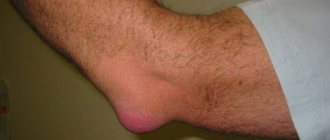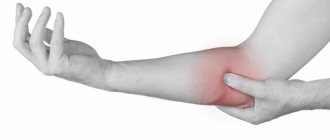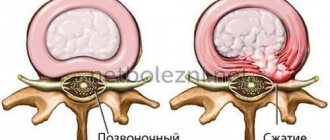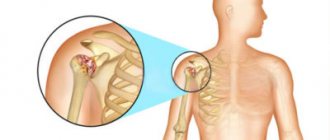Weakness
is a subjective feeling of lack of energy in everyday situations. Complaints of weakness usually arise when actions that were previously familiar and natural suddenly begin to require special effort.
Weakness is often accompanied by symptoms such as dizziness, confusion, drowsiness, headaches or muscle pain.
Fatigue at the end of a working day or after performing a long or complex job cannot be considered a weakness, since such fatigue is natural for the body. Normal fatigue goes away after rest; healthy sleep and well-spent weekends help a lot. But if sleep does not bring cheerfulness, and a person, having just woken up, already feels tired, then there is a reason to consult a doctor.
Causes of weakness
Weakness can be caused by a number of reasons, including:
- avitaminosis. Weakness is often caused by a lack of vitamin B12, which is essential for making red blood cells (RBCs) and preventing anemia, and is also important for cell growth. Vitamin B12 deficiency leads to the development of anemia, which is considered the most common cause of general weakness. Another vitamin whose deficiency leads to weakness is vitamin D. This vitamin is produced by the body when exposed to sunlight. Therefore, in autumn and winter, when daylight hours are short and the sun does not appear often, a lack of vitamin D may be the cause of weakness;
- depression;
- thyroid diseases. Weakness can occur with both increased thyroid function (hyperthyroidism) and decreased function (hypothyroidism). With hypothyroidism, as a rule, there is weakness in the arms and legs, which is described by patients as “everything falls out of hand”, “legs give way”. With hyperthyroidism, general weakness is observed against the background of other characteristic symptoms (nervous excitability, hand tremors, elevated temperature, rapid heartbeat, weight loss while maintaining appetite);
- vegetative-vascular dystonia;
- chronic fatigue syndrome, indicating extreme depletion of vitality;
- Celiac enteropathy (celiac disease) is the inability of the intestines to digest gluten. If at the same time a person consumes products made from flour - bread, pastries, pasta, pizza, etc. – manifestations of indigestion develop (flatulence, diarrhea), accompanied by constant fatigue;
- diabetes;
- diseases of the cardiovascular system;
- oncological diseases. In this case, weakness is usually accompanied by low-grade fever;
- lack of fluid in the body. Weakness often comes in the summer during hot weather, when the body loses a lot of water, and it is not possible to restore the water balance in time;
- some medications (antihistamines, antidepressants, beta blockers).
An attack of weakness can also occur in the following cases:
- trauma (with large blood loss);
- brain injury (in combination with neurological symptoms);
- menses;
- intoxication (including infectious diseases such as influenza).
Causes of feeling of heaviness in the body or limbs
As was said, the reasons for the feeling of heaviness in the body, in the arms, in the legs, which is often combined with a feeling of general weakness in the body, decreased muscle tone, and loss of “vital energy,” are various disorders in the neuropsychic sphere of a person. If such sensations often appear or become constant, then you should pay special attention to this. The most common causes of a feeling of heaviness in the body or limbs is the development of a borderline mental disorder (neuroses, anxiety disorders, depression, etc.), often associated with strong emotional experiences, stress, high psychophysical stress, associated with a decrease in mood, sleep disturbances, changes in appetite.
The most common complaints are a feeling of heaviness in the body or limbs
- Heart pain, palpitations, chest pain, chest pain.
- Psychosomatic disorders.
- Muscle pain. Muscle pain (“twists”).
- Lower back pain, heaviness in the lower back or back.
- Headaches of various types and intensity.
- Feelings of heat or chills. Attacks or “hot flashes” of heat, chills.
- Feeling of a lump in the throat. Difficulty swallowing, choking.
- Nausea, stomach pain, gastrointestinal disorders.
- Feeling of weakness, emptiness, fatigue.
- Dizziness. Impotence.
- Numbness and tingling in different parts of the body.
Weakness and dizziness
Dizziness quite often occurs against a background of general weakness. A combination of these symptoms may occur in the following cases:
- anemia;
- cerebrovascular accidents;
- a sharp increase or decrease in blood pressure;
- oncological diseases;
- stress;
- in women - during menstruation or menopause.
Weakness and drowsiness
Patients often complain that they want to sleep, but do not have enough strength for normal life activities. The combination of weakness and drowsiness is possible for the following reasons:
- lack of oxygen. The urban atmosphere is poor in oxygen. Constant stay in the city contributes to the development of weakness and drowsiness;
- decrease in atmospheric pressure and magnetic storms. People who are sensitive to weather changes are called weather dependent. If you are weather dependent, bad weather may cause your weakness and drowsiness;
- avitaminosis;
- poor or unhealthy diet;
- hormonal disorders;
- alcohol abuse;
- chronic fatigue syndrome;
- vegetative-vascular dystonia;
- other diseases (including infectious ones - in the early stages, when other symptoms have not yet appeared).
Treatment methods
The main treatment for pain and stiffness in the fingers in our clinic is carried out by highly specialized specialists with extensive experience in this field. Using the most ancient methods of oriental medicine, they completely relieve pain and eliminate the root cause of its occurrence. We can offer our patients complex therapy, which includes the following procedures:
- Acupuncture. Restores blood circulation in the hands.
- Acupressure. Helps activate the body's metabolic processes.
- Pharmacopuncture. Thanks to herbal preparations, acute pain goes away literally after the first session.
- Manual therapy. With its help, specialists will relieve joint pain and strengthen them.
Treatment of pain and stiffness in the hand at the Paramita clinic
In our clinic, treatment of pain and stiffness in the fingers begins with a comprehensive examination and determination of the factors that caused this disease. Depending on the causes of the disease and the individual characteristics of the patient, a course of treatment is developed, which is carried out by the best specialists using proven and proven methods.
Another feature of our clinic is that only the most effective and safe procedures are used to treat pain. After completing the course of treatment, the doctor will tell you in detail about preventive methods to avoid relapse, and you can forget about your problem forever.
Sign up for a free initial appointment
Weakness: what to do?
If weakness is not accompanied by any disturbing symptoms, you can improve your well-being by following these recommendations:
- provide yourself with a normal amount of sleep (6-8 hours a day);
- keep a daily routine (go to bed and get up at the same time);
- try not to be nervous, relieve yourself of stress;
- exercise, provide yourself with optimal physical activity;
- spend more time in the fresh air;
- optimize your nutrition. It should be regular and balanced. Avoid fatty foods. If you are overweight, try to get rid of it;
- make sure to drink enough water (at least 2 liters per day);
- quit smoking and limit your alcohol consumption.
When should you see a doctor if you feel weak?
If weakness does not go away within a few days or, moreover, lasts more than two weeks, you should definitely consult a doctor.
You should not hesitate to consult a doctor if weakness is accompanied by symptoms such as:
- dyspnea;
- cough;
- fever, chills, increased temperature;
- stomach upset;
- sudden weight loss;
- mood changes, apathy, depression.
Treatment of feeling of heaviness in the body, heaviness in the arms, heaviness in the legs
Any treatment must begin with a correct diagnosis, and it is good if it is carried out by an experienced doctor with extensive experience in practical work. As it became clear from the article, there are many reasons for the appearance of feelings of heaviness in the body. Therefore, when carrying out differential diagnosis, the participation of both a neurologist and a psychotherapist or psychiatrist is necessary.
After establishing a complete and accurate diagnosis and identifying the individual developmental characteristics of the body, the doctor selects the necessary treatment to remove the feeling of heaviness in the body as quickly as possible and then continue to treat the cause of the feeling of heaviness.
The basic treatment regimen for feelings of heaviness takes into account the cause and consists of neurometabolic therapy, psychotherapy, daily routine, and, if necessary, physiotherapy and exercise therapy can be added.
Rationale for the main causes of heaviness in the body
What is the most common cause of a feeling of heaviness in the body or limbs, which can occur together with other physical complaints? Why do competent doctors with complaints of a feeling of heaviness in the body or limbs refer for consultation to a psychotherapist? Why are such painful physical sensations as heaviness in the body or limbs and other manifestations associated with the higher function of the brain?
The explanation for this is quite logical and is confirmed by human physiology. The brain is the analyzer and main coordinator of all processes that occur in the body. It is he who transmits information about the state of the body to our consciousness and, with its help, we feel and separate various processes, feel pain, heat or cold, see, hear, touch, express feelings, etc. If the mechanisms of interaction between brain cells, neurons, are disrupted, then both our sensations and physiological processes in the body are disrupted. Therefore, along with sensations, physiological disorders of various organs and tissues often begin to appear. Eg. Due to some negative effect on the brain, a malfunction occurred in one of its departments. This area begins to incorrectly process incoming information from the limbs or the whole body, and transmits this incorrect information to the person in his consciousness, which is perceived as heaviness in the limbs. Naturally, a person begins to worry and look for a reason.
Which doctor should I contact about weakness?
If weakness is the main complaint, then it is best to consult a general practitioner (general practitioner or family doctor).
If you have stomach problems due to weakness, you can consult a gastroenterologist.
If weakness is accompanied by pain or discomfort in the heart area, you should consult a cardiologist.
Be prepared for the fact that you may be referred for consultation to doctors of such specialties as a hematologist, oncologist, neurologist, endocrinologist, or psychotherapist.
Manifestation of a feeling of heaviness in the body
Very often, people believe that a feeling of heaviness in the body or heaviness in the limbs is a consequence of physical fatigue, hard work, or a consequence of some kind of physical ailment, which can often accompany such sensations.
For example, patients who feel heaviness in the body or limbs often turn to a gastroenterologist with complaints of indigestion or pain in the stomach, where examination often reveals various pathologies in the form of gastritis, gastric erosions, and biliary dyskinesia. There may be such unpleasant manifestations as intestinal flatulence, diarrhea, constipation, seething or rumbling in the abdomen. It is not uncommon for heaviness in the limbs to be accompanied by various pain sensations in the heart or upper abdomen.
When patients complain of heaviness in the body or limbs to a cardiologist, in most cases various “pathologies” are found in the form of extrasystole, ventricular hypertrophy, and often even arrhythmias or insufficiency of the heart valve system, blockade of the Hiss legs, various types of changes in electrocardiogram, tachycardia, hypertension and many other changes.
When patients who feel heaviness in the body or limbs consult a neurologist, osteochondrosis, insufficiency of venous outflow or disorders of the arteries in the cervical vessels are most often recorded. During MRI examinations of the brain, aneurysms, cysts, expansion of various basins, etc. are found. When examining the EEG, there are also quite a few changes in the form of changes in various activities, waves, even convulsive readiness and what the EEG in principle cannot show (spikes, structural changes, etc.). At the same time, complaints about sensations of heaviness in the limbs receive their own specific explanation and fade into the background.
Possible treatment options for heaviness in the body
People who complain of a feeling of heaviness in the body or limbs most often come to the therapist with additional complaints such as: constant body temperature at 37.0 - 37.6, headaches, sleep disturbances, coughing, frequent belching, malaise , frequent colds. Moreover, and here there are often explanations for the sensations of heaviness in the limbs or in the body, for example, in the likely presence of small deviations in hemoglobin, leukocytes or red blood cells, small changes in the hormonal sphere can also be detected, most often these are indicators of the thyroid gland.
As a rule, the treatment prescribed by these doctors does not help much, and more often than not it has no effect, or may get worse. The feeling of weakness in the body or limbs does not go away, but other unpleasant or painful sensations in the body may be added and registered by other doctors. Doctors are prescribing more and more new treatments; there are more and more different pathologies that require “urgent treatment”, which, like the previous ones, does not give the desired effect. This pathology, which is detected by a cardiologist, gastroenterologist or neurologist and therapist, in combination with feelings of heaviness in the body or heaviness in the limbs, most often has a direct relationship to a disorder of higher nervous activity and indicates the presence of some kind of mental disorder.
A person who feels heaviness in the body or limbs most often ends up in a “vicious circle” and goes from one doctor to another until he gets to a good, conscientious doctor who will refer him to a psychiatrist, psychotherapist (psychotherapist) or himself will not accidentally come to the attention of a psychotherapist. But, in most cases, people do not want to admit that they have mental disorders and believe that the doctor who referred him to a psychotherapist is illiterate and just wants to get rid of him, because he does not know how to treat him. Such people often insist on continuing complex examinations and treatment, regardless of reasonable advice, and often end up on the operating table without any objective evidence for this.







